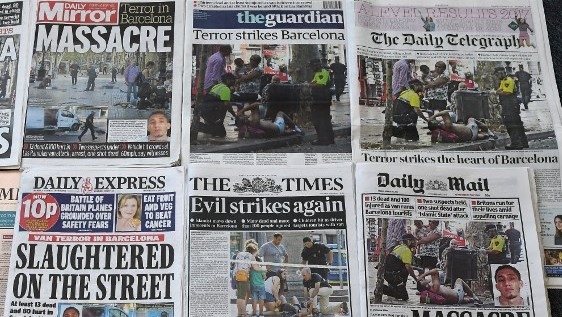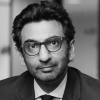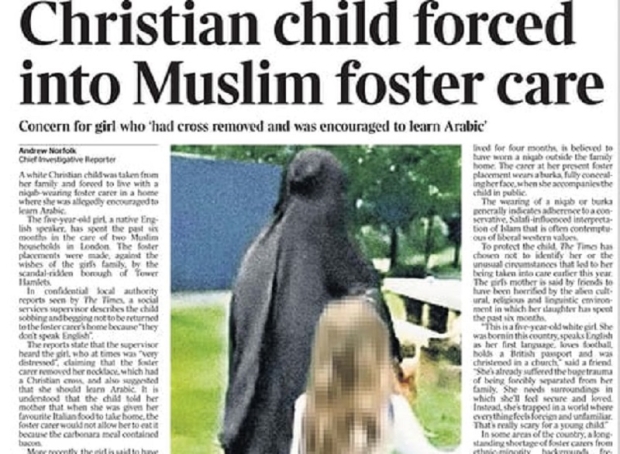Gary Jones has told the truth about the British media's Islamophobic reporting

That the British media is consistently Islamophobic is a well-researched and well-identified state of affairs. However, what is less expected is when a prominent newspaper editor is willing to make clear to a Parliamentary committee that this is precisely the case and that his own newspaper is culpable in spreading the hate, bigotry and intolerance that feeds into a perpetual cycle.
Islamophobic reporting
On Tuesday, Gary Jones, the newly appointed editor of the Daily Express, told the Home Affairs Committee in Parliament that his newspaper had been creating an "Islamophobic sentiment" based on inaccurate and misguided reporting, with some stories that are "downright offensive".
It is undoubtedly the case that being honest is important, and especially so in the context of a public hearing on the role of the press in determining the way news stories are perceived in which editors have a direct and specific responsibility to provide an honest and fair account.
And it is especially significant given the reality of Islamophobic reporting in the news media, in particular, is often a function of editors, senior editors and newspaper owners whose own political, cultural and ideological leanings, combined with an eye on readership numbers, are the ones, in the final analysis, which control the message and its content.
The reality of commercialism in relation to news media leads to a situation of bias that aims to maintain a uninterrupted anxiety on the part of readers whose own fears and apprehensions are magnified on a repeated basis
In a competitive arena where journalists are vying to tell an accurate and meaningful story, the ultimate editorial decisions are at the whims of senior managers whose motivations reflect more than the commercial needs of the newspapers.
The reality of commercialism in relation to news media leads to a situation of bias that aims to maintain an uninterrupted anxiety on the part of readers whose own fears and apprehensions are magnified on a repeated basis. Primed readers comprehend a perspective on Islam and Muslims that aligns with their own biased leanings previously determined by the very same news media outlets.
'Project fear'
News media Islamophobia is a continuous cycle that needs to be broken, especially as news media exists as an opportunity to inform readers, rather than misinform them.
But the problem is not just that this news media is biased. What is called news in newspapers and on TV channels is rarely news. Rather it is a carefully packaged, presented and polished perspective on the world systematically manufactured, produced and disseminated in a process led by the motivations of profit in an otherwise competitive arena for the attention of readers.
The Daily Mail, the Daily Express, and the Daily Mirror all started as checks on the workings of government, but as soon as advertising entered into the fray, the need for differentiation of news that appealed to certain segments of the population - in an attempt to compete with each other to sustain profits - became the dominant paradigm.
Gary Jones of the Daily Express has been in post for one month. Let us hope he stays around long enough to begin to make a difference and one that encourages others to do so too
In the present day, to ensure maximum readership, stylised salaciousness, gossip, voyeurism and "project fear" are tools used to maintain a dedicated readership.
While news media is a leading culprit in this, media Islamophobia is also found in television, film, magazines and especially in social media; in fact, wherever there is sustained mass media consumption. Media Islamophobia is also a bedfellow of politics.
Therefore, negative sentiments towards Muslims routinely feature in discourses within parts of the British government, especially on matters of integration, immigration and diversity.
The hyper-normalisation of Islamophobia
The conundrum of our times is the hyper-normalisation of Islamophobia and the nature of how audiences are primed to be attune to it.
As the monster is systematically fed the same stimulants, it perceives stories that paint Islam and Muslims in any other light unpalatable.
For a fundamental shift in this paradigm, the unthinkable has to happen. It has to come from the top.
Only then will other institutions follow. A vital requisite has to be the breakup of large media holdings, including social media, that wield more power than is healthy for a liberal democracy.
The other is legislation to curb the unchecked powers of large media corporations, through investing in organisations such as the Independent Press Standards Organisation to take down stories that contain mistruths, misinformation, distorted reporting, biased analysis, sheer exaggeration and downright lies.
The narrative has to change. This is not about isolated cases but a systematic problem that grows deeper and more hypernormalised every day.
This unsustainable set of circumstances can only lead to further breakdown in social and community relations as evidenced in extensive academic studies that emphasise the relationship between media misrepresentations and violence.
Not only does Islamophobia gird the loins of organisations such as the English Defence League, for example, it also feeds into the rhetoric of Islamist radicalisers who motivate vulnerable young minds by presenting to them the mass of evidence sustaining the view that Britain and other parts of Western Europe are fundamentally Islamophobic.
This media misreporting not only distort the debate on social cohesion, but fuels the polarisation that inevitably ensues. It is a woeful situation perpetuated by those in positions of power and influence. They do little to change the outcomes of suffering victims who are repeatedly left unaided and ultimately ignored.
The concerns of Muslims rest with brave and tireless warriors such as Miqdaad Versi of the Muslim Council of Britain and Mehdi Hasan, journalist and broadcaster, now working in Washington DC, who regularly speak out against this disease of institutional media Islamophobia in the UK.
Where are those at the pinnacle of the news media manufacturing industry? Gary Jones of the Daily Express has been in post for one month. Let us hope he stays around long enough to begin to make a difference and encourages others to do so too.
Profits do not have to be made by demonising Muslims – and most readers would freely read stories that inform and enlighten rather than habitually distort and damage.
- Professor Tahir Abbas is currently visiting senior fellow at the department of government, London School of Economics. His recent books are Contemporary Turkey in Conflict: Ethnicity, Islam and Politics (Edinburgh University Press, 2016), and the four-volume edited collection Muslim Diasporas in the West (Routledge, 2017).
The views expressed in this article belong to the author and do not necessarily reflect the editorial policy of Middle East Eye.
Photo: A picture shows frontpages of British national newspapers, with stories dedicated to the Barcelona attack, one day after a van ploughed into the crowd, killing 13 persons and injuring over 100 on the Rambla boulevard in Barcelona on 18 August 2017 (AFP)
Middle East Eye propose une couverture et une analyse indépendantes et incomparables du Moyen-Orient, de l’Afrique du Nord et d’autres régions du monde. Pour en savoir plus sur la reprise de ce contenu et les frais qui s’appliquent, veuillez remplir ce formulaire [en anglais]. Pour en savoir plus sur MEE, cliquez ici [en anglais].






